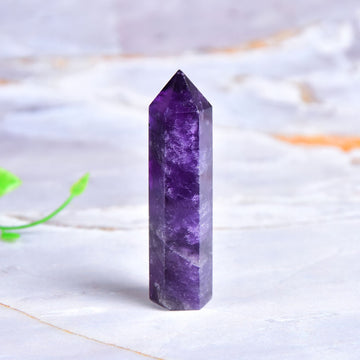Author: Puja Shah
“Yoga is the journey of the self, through the self, to the self.” –Bhagavad Gita
Yoga. The union of mind, body and soul. A practice for strengthening abs, finding peace of mind and nurturing the soul through movement, breath-work and meditation.
But what if I told you that movement was not only for the abs, breath was not only for the mind and meditation was not only for the soul?
What if…it was not what you thought it was at all?
Yoga is union with the experience of the present moment. It allows all of our systems to work together simultaneously as ONE. Each movement, each breath and each pause can help with balancing emotions, especially the feeling that gets your blood boiling: anger.
Our emotions, particularly anger, rise from a two-stage jolt from the catecholamine neurotransmitters in our body (think adrenaline). They do for anger what gasoline does for fire. The first surge of anger can last for just a few minutes but it is enough to energize the body for immediate action. We enter Fight or Flight mode depending on the situation. Our Fight or Flight response can actually hold over for days from when the main threat to our bodies happened. This may explain why we hold onto emotion and erupt at a later time. The second surge of catecholamines lasts much longer, from hours to days. We remain in an extended state of arousal which explains why we’ll strike out at whatever enters our space—kids, spouse, even the cat—for something that normally wouldn’t bug us. The seductive power of anger and rage gets us high on catecholamines. We experience a strong, clear, dark and purpose-filled feeling. It can be intoxicating.
How do we get those catecholamines down?
According to Krishnan Kumar Suman in Yoga for Health and Relaxation, the specific calming act of linking breath with movement and the deep reflection of yoga actually provides a decrease of catecholamines in the body which, as a result, reduces anger. This is just one of the many amazing and immediate health benefits yoga has to offer.
Spiritually, the chakra system in yoga says that anger is produced in the third chakra, which physically resides in our gut. Energetically, our core is home to strong power. Scientifically, it is where the adrenals are located. Yoga helps align the flow of energy through the chakras (or energy centers), allowing for a fluid release and movement of any stagnant anger.
“You will not be punished for your anger. You will be punished by your anger.”
-Buddha
It’s true. Anger seems to have a whole list of effects on the body. According to the Australian Government’s Better Health Channel, some of the short- and long-term health problems that have been linked to unmanaged anger include:
- -headache
- -digestive problems, such as abdominal pain
- -insomnia
- -increased anxiety
- -depression
- high blood pressure
- -skin problems, such as eczema
- -heart attack
- -stroke
The next time you start to feel that rush to your head, try out this powerful breath work and simple yoga exercise to feel the inner shift of calm:
Breath of Fire: (KAPALABHATI PRANAYAMA) Note: if you have no experience with deep breathing or have any medical concerns, please practice this breath with a trained teacher.
Begin in a comfortable seated position with the palms of both hands resting at your belly. Take a deep breath in and exhale until your lungs are only one-quarter filled with air. Next, create a rapid breath by pumping short exhales and contracting your diaphragm. When you relax your diaphragm, you will naturally inhale. Let the relaxation phase of your inhale be the same pace of your stacked exhale so that you are breathing in short, rhythmic bursts at one-quarter capacity of your lungs each time. Practice for 20-second intervals only and for a maximum of 2 minutes each time.
This pranayama is said to awaken the Kundalini power within us at the third chakra. This power can be seen in the form of deep intuition and physical energy if practiced regularly.
Child’s Pose: (BALASANA)
To get into Child’s Pose, begin by kneeling on the floor. Inhale and push your buttocks back to rest on your heels and bring your big toes touch so your knees separate as wide as your hips. As you exhale, relax your torso between your hips, allowing your forehead to either reach the floor or onto a rolled blanket in front of you. Bring your arms to rest alongside your body with the palms facing up. Inhale and exhale deeply through the nostrils for 10 to 20 breath cycles before releasing and gently bringing your head back up to kneeling position.
This is a great video to help guide you through Child’s Pose.
As a kid’s yoga teacher, I use Child’s Pose often in the classroom. The power of this pose recently was told to me by my 4 year old student. It’s what motivated me to share it with you here.
“I was feeling mad at my brother so I became a seed [what we refer to as child’s pose in her class] and I felt much better.”
If this young girl can witness her emotions transform from anger to peace in an instant at her delicate age, we all can truly become these seeds of change.
If you enjoyed reading about soothing anger with yoga, remember this is just one of many ways to ‘bend’ reality, tap into powers beyond your conscious existence, and connect with your infinite self.



































